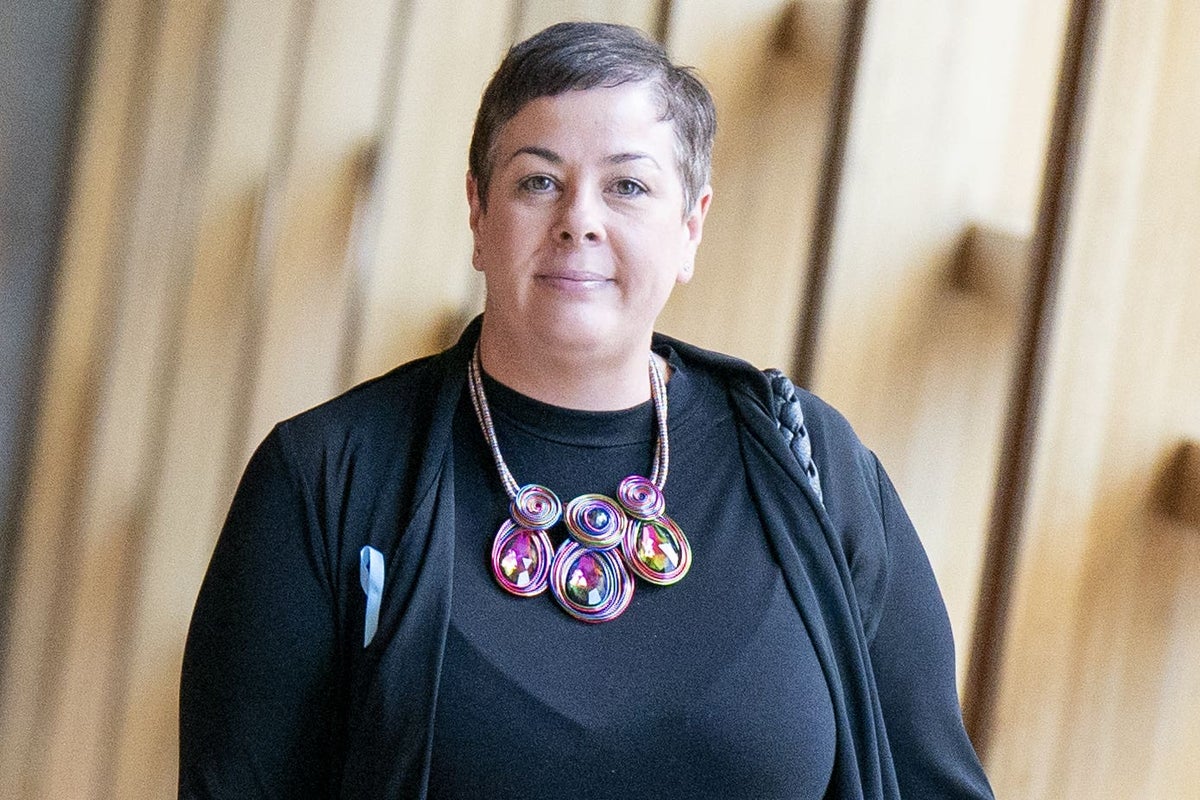
The minister in charge of Scotland’s drug policy has said the tide is turning in the crisis as new figures revealed the country’s largest ever fall in deaths.
Data from National Records of Scotland (NRS) showed there were a total of 1,051 deaths due to drug misuse in 2022 – a drop of 279 on the previous year.
It is the second year in a row that drug deaths have fallen – although the total for 2021 dropped by just nine from the record high seen in 2020, when 1,339 people died.
Drugs and alcohol policy minister Elena Whitham said the decline shows policies like expanding residential rehabilitation were making “significant progress”.
The data also showed the rate of “drug poisoning deaths” in Scotland in 2021 – the most recent year for which comparisons are available – was 2.7 times higher than average for the UK.
And while the number of deaths linked to drugs misuse is now at the lowest it has been since 2017, the NRS report made clear that the rate of deaths is still “much higher” than it was when recording the data began in 1996.
It found that “after adjusting for age, there were 3.7 times as many drug misuse deaths in 2022 as in 2000”.
According to the data, Scotland had 19.8 drug misuse deaths for every 100,000 people in the country in 2022 – with this rate down from 25 in 2021.
Death rates were almost 16 times higher in the most deprived parts of the country, at 52.4 per 100,000 people, compared to 3.3 per 100,000 in the most affluent areas.
The Glasgow City Council area had the highest rate of drug misuse deaths over the period 2018 to 2022, at 44.4 deaths per 100,000 people, with this closely followed by Dundee City, where the rate was 43.1.
In contrast, in East Renfrewshire, the drugs death rate was 9.5 per 100,000 people and in Aberdeenshire it was 11.1.
Opiods, such as heroin and methadone, were involved in 867 (82%) of the deaths in 2022, the data showed.
Meanwhile, benzodiazepines – such as diazepam – were implicated in 601 deaths, while cocaine was involved in 371 fatalities.
And there were 476 drug misuse deaths where controlled, new, psychoactive substances were implicated, with some deaths having involved more than one type of drug.
Drug policy minister Elena Whitham welcomed the fall in deaths, though she stressed: “My sympathy goes out to all those affected by the loss of a loved one through drugs.
“While I am pleased to see that hundreds of families have been spared this agony and lives have been saved, every life lost is a tragedy and the number of deaths is still too high.”
But speaking on a visit to the Back on the Road project in Glasgow, which helps those who have suffered addiction into work, she said 300 such grass roots initiatives had been supported by the Scottish Government.
She told the PA news agency: “I welcome the reduction that we’ve seen today and I think that demonstrates the harm reduction and evidence-based policies that we’re implementing through our national mission to save and improve lives is actually starting to work on the ground.”
She added: “I think we’ve definitely seen the tide turning on this. I think what I’m concerned about is the fact that we have hugely potent, synthetic opioids making their way into supply within Scotland.
“That means we need to have all the harm reduction measures that we possibly can have on the ground.
“That’s why I’m asking the UK Government to work with me to make sure that we can have a network of safer consumption facilities and drug-checking facilities across the country so people can know what’s in the substances they’re using, and they can use it in the safest way possible.”
Ms Whitham added: “As part of our £250 million national mission on drugs, we’ll continue to focus on getting more people into the form of treatment and support they need, expand access to residential rehabilitation and drive the rollout of life-saving medication assisted treatment (MAT) standards where we are making significant progress.”
However, she also said the UK Government “could do more to work with us to help introduce harm reduction measures”.
The Scottish Government has been pressing for a safe consumption facility to be set up, with efforts on this having so far been blocked by Westminster.







